The Biggest Food Recalls In Walmart History

Even though many of the items you buy are regulated, recalls are not irregular in the retail world. Most of the time — but not always — recalls are related to safety. Safety is particularly important when talking about food; to that end, in the 2020s, there have been over 400 FDA-issued food recalls a year. The most common reason food is recalled is undeclared allergens, which have the potential to get dangerous and deadly fast. Other reasons include bacterial contamination or foreign objects in the food.
Walmart, the world's largest retailer, has encountered its fair share of food-related recalls over the years. The list below is certainly not exhaustive, but it highlights some of the most noteworthy cases involving this store with an untold truth of the last couple of decades. These are recalls in which large batches of items were recalled or people got sick, or in some cases, the reason behind the recall is just a bit bizarre.
Read more: 12 Rules Shoppers Must Follow At Costco
Peanut Butter (2006)
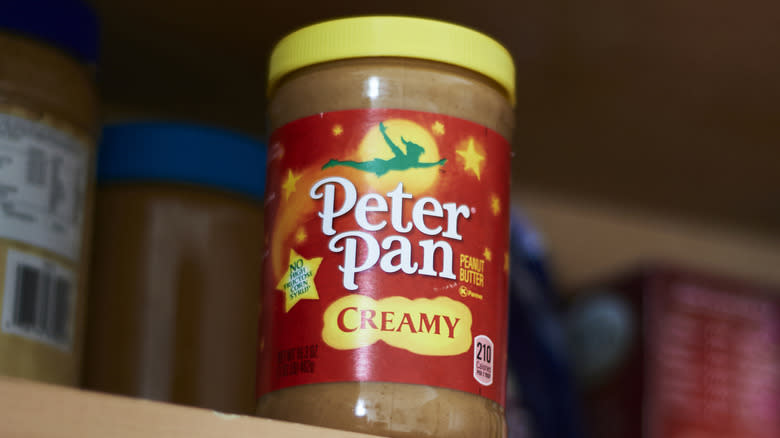
In 2006, Walmart recalled peanut butter due to a Salmonella Tennessee contamination. The outbreak resulted in 628 reported cases of salmonellosis across 47 states. The CDC and state health departments identified peanut butter brands Peter Pan and Great Value, produced at ConAgra's Georgia facility, as the outbreak's origin. An epidemiologic study and product testing confirmed the link between these brands and the outbreak, leading to significant legal and safety scrutiny in the peanut butter industry. This discovery led to a widespread recall — all products with a code beginning in 2111 — and an $11.2 million settlement by ConAgra, marking the largest criminal fine in a U.S. food safety case.
The outbreak was attributed to facility issues, including a leaky roof, which allowed moisture to facilitate the growth of salmonella. According to the CDC, "Peanuts can become contaminated with salmonellae during growth, harvest, or storage, and the organisms can survive high temperatures in a high-fat, low-water--activity environment." Yikes. Maybe you should just grow your own peanuts and then make the peanut butter yourself.
Romaine Lettuce (2018)
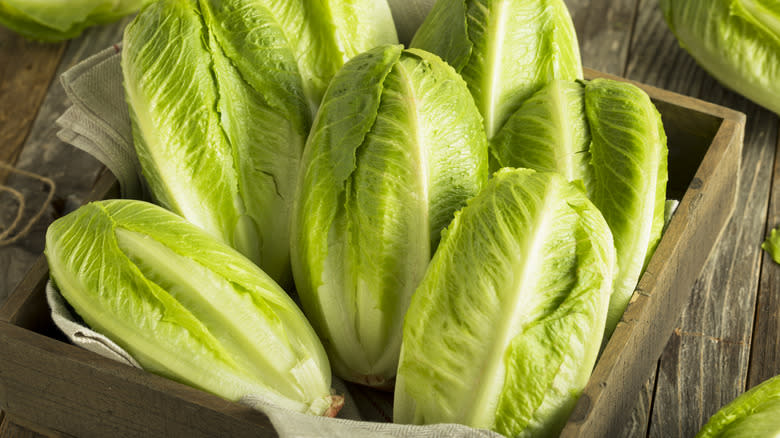
When in 2020, Tanimura & Antle, a Salinas, California-based produce company, issued a recall for nearly 4,000 cases of romaine lettuce due to potential contamination with E. coli O157:H7, it affected products distributed to over 1,000 Walmart stores across the United States. While no deaths were reported, 12 people in California, Illinois, Michigan, Ohio, Pennsylvania, and Virginia got sick. Of them, five were hospitalized.
The recall specifically targeted single heads of Tanimura & Antle branded romaine lettuce in clear plastic bags with specific sell-by dates. These products reached consumers across a wide range of states including Virginia, Arkansas, California, and others, extending to Puerto Rico. Just two years prior, after another E. Coli scare involving romaine lettuce, Walmart had implemented blockchain technology to trace leafy greens. The company aimed to quickly track produce from farm to store to improve food safety. The new technology required Walmart's suppliers to trace their leafy greens back to the original farm within seconds, whereas before they were allowed days.
Frozen Meat Patties (2019)

In 2019, Walmart initiated a recall of more than 6,400 pounds of Walmart's Great Value brand frozen meat (produced by George's Prepared Foods) for possible salmonella contamination. The recall was issued after it was discovered that products meant for disposal due to positive salmonella tests were accidentally distributed across the country instead. The USDA urged consumers to either dispose of or return the affected products to the store. Luckily, no illnesses were reported in connection with this incident. However, salmonella can often lead to salmonellosis, which can lead to illness, such as diarrhea so severe you may need hospitalization.
But 2019 is not the only time Walmart's gotten in trouble with its meat. Just three years later, Walmart was affected by a 120,000-pound ground beef recall that hit other stores such as Target and Weis Markets. Hundreds of Walmart stores had to recall beef due to the risk of E. coli.
Frozen Berry Mix (2013)
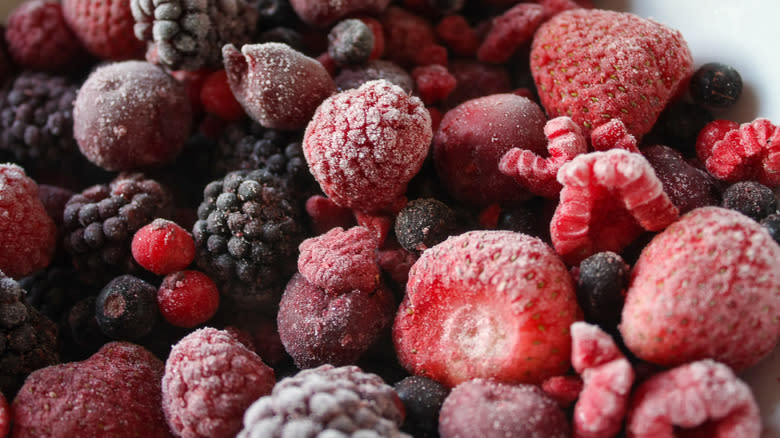
In 2023, Walmart faced a recall of frozen berry mixes containing strawberries grown in Mexico due to possible contamination with hepatitis A. The voluntary recall from Walmart supplier Willamette Valley Fruit Co. happened after a larger outbreak was investigated, involving 10 cases of hepatitis A across four states (California, Hawaii, Oregon, and Washington) linked to frozen organic strawberries imported from Baja California, Mexico. The outbreak spanned from November 24, 2022, to May 27, 2023, resulting in four hospitalizations but no fatalities.
All affected individuals had consumed frozen organic strawberries, leading to an investigation by the CDC, state public health and regulatory officials, and the FDA. This probe identified the strawberries as the likely outbreak source, connecting them to a common farm. The strawberries were sold under multiple brand labels to various retailers. The Walmart products recalled were Great Value Sliced Strawberries, Great Value Mixed Fruit, and Great Value Antioxidant Fruit Blend. They were sold in Walmart stores in more than 30 states.
Infant Formula (2019)
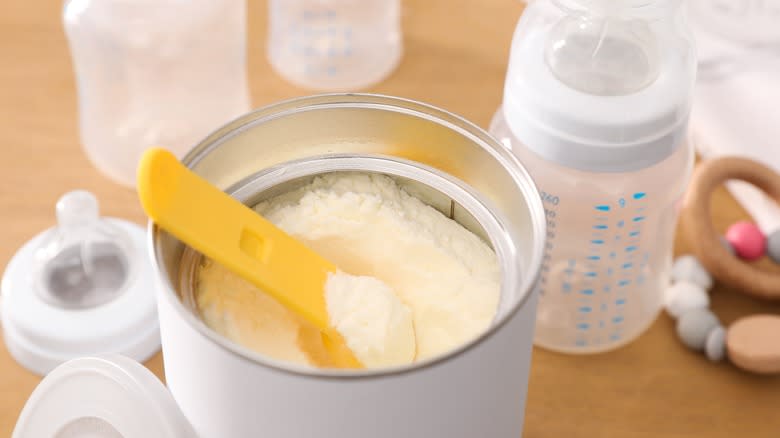
In 2019, Perrigo issued a recall of Choice Advantage Infant Formula Milk-Based Powder with Iron, which is sold at Walmart. The recall was due to the potential contamination of a single lot with metal foreign matter, identified through a customer complaint. Though no adverse events were reported, the recall was launched as a precautionary measure. The specific lot affected was marked with Lot Code C26EVFV and a "use by'' date of February 26, 2021. Consumers in possession of the product were instructed to cease use immediately and return it to any Walmart store for a full refund. This response was coordinated in close consultation with the FDA. The recalled lot of this formula included 23,388 containers.
However, it's not just Walmart that's had to deal with infant formula recalls. Since 2022, there's been a spate of formula recalls around the country. However, most of those have been due to bacterial contamination and not risk of foreign object presence.
Ground Turkey (2011)

In 2011, a significant Salmonella Heidelberg outbreak linked to ground turkey resulted in 136 reported cases across 34 states, according to the CDC. This particular strain was resistant to several antibiotics, potentially increasing the risk of hospitalization for those affected. Investigations pinpointed a production establishment as the source, leading to a massive recall of about 36 million pounds of ground turkey products by Cargill to mitigate further illness. The recalled products included brands like Honeysuckle White and Shady Brook Farms at Walmart, and Fit and Active at Aldi.
The outbreak spanned from February 27 to September 13, 2011, with patients ranging from less than one to 90 years old. Of those with available information, 39% were hospitalized, and one death was reported. Cargill Meat Solutions Corporation expanded the recall by an additional 185,000 pounds of ground turkey products in September after further testing at their facility confirmed the presence of the outbreak strain, which was also found to be multidrug-resistant. And, in case you haven't lost the stomach for ground turkey, check out some awesome ground turkey recipes.
Prepackaged Salad Mix (2024)
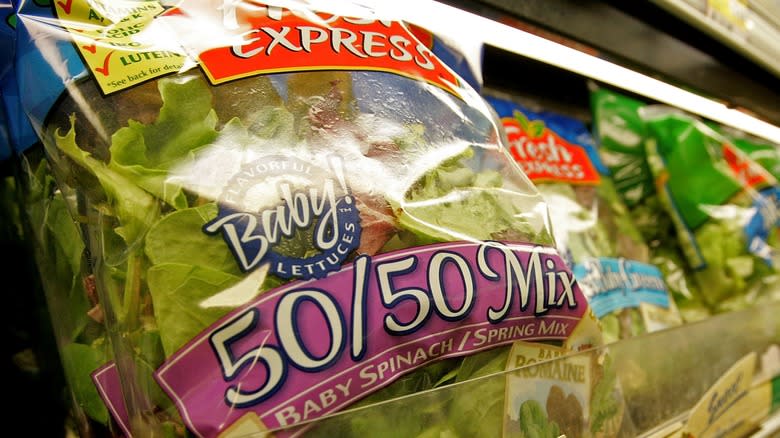
In February 2024, Walmart recalled two of its Marketside salad kits, Bacon Ranch Crunch Salad Kit and Southwest Chopped Salad Kit, due to a potential risk of contamination with Listeria monocytogenes. The two salad kit recalls affected over 20 states. In fact, a recent surge in recalls, sparked by listeria detection at Rizo-López Foods in California, has impacted bagged salads and chicken taco kits sold at other major retailers like Albertsons and Costco.
Interestingly, the CDC links this current outbreak to two deaths and 23 hospitalizations over nine years, with 26 people affected since 2014. Investigations revealed a connection between the illness and consumption of queso fresco and cotija cheeses, with listeria found in aged cotija cheese leading to a significant recall. The outbreak is tied to a persistent strain of listeria identified at the plant, highlighting ongoing food safety challenges. About 1,600 people in the U.S. get sick from listeria yearly; of them, about 260 die, according to the CDC.
Fresh Cut Fruit (2020)
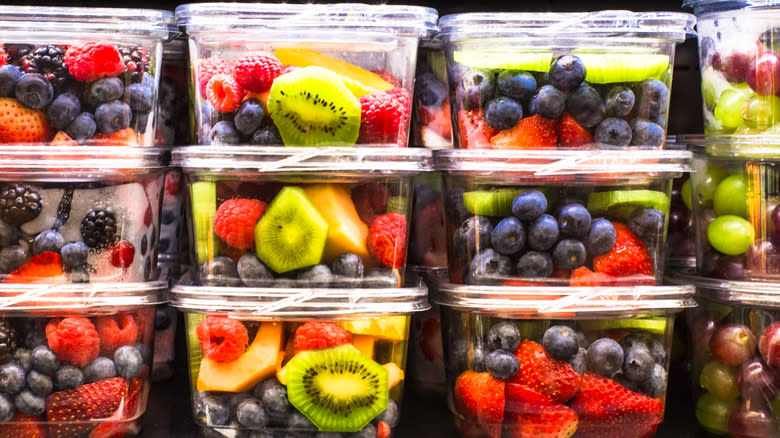
In October 2020, Walmart supplier Country Fresh expanded a voluntary recall to encompass a range of Freshness Guaranteed cut and sliced fruit products, including apples, grapes, mangos, pineapples, and cantaloupe, distributed through Walmart due to potential contamination with Listeria monocytogenes. This recall was a precautionary action following the detection of Listeria on equipment in proximity to the product packaging area when the FDA identified the contamination risk during an inspection.
There were no reported illnesses associated with this recall. Affected products, which were shipped to Walmart distribution centers and then to select stores in Arkansas, Illinois, Indiana, Kansas, Kentucky, Louisiana, Missouri, Oklahoma, and Texas, were packaged in different sizes of clamshell containers. Walmart removed contaminated products from stores immediately since a listeria infection can cause harmful symptoms and can even result in death. Consumers were advised to either discard the fresh fruit products or return them to Walmart for a refund.
'Five Spice' Donkey Meat (2014)
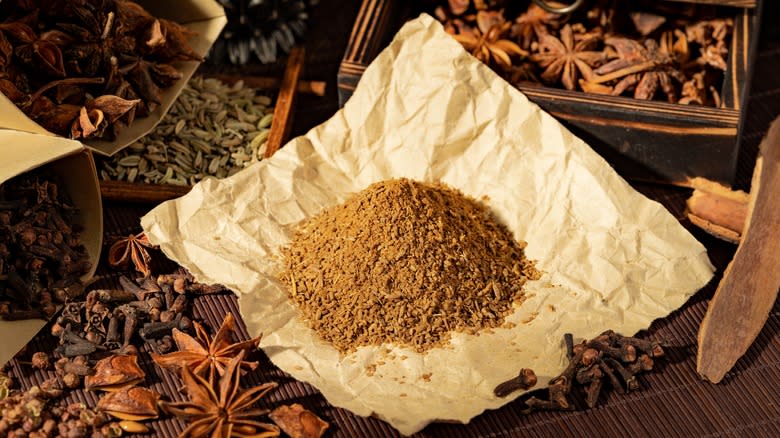
In 2014, Walmart China recalled its popular "five spice" donkey meat for containing fox DNA. The inclusion of fox meat, a much cheaper and less desirable product, indicated a significant breach in food safety and authenticity standards, leading Walmart to recall the affected product. An individual associated with the supplier's factory was detained due to fraud.
The Shandong Food and Drug Administration confirmed the presence of fox meat in the products. Walmart responded to the controversy by offering refunds to customers who purchased the tainted product and collaborated with local food and industry agencies in Shandong province to investigate the Chinese supplier further. While donkey is a semi-popular snack in areas of China, fox meat is not. However, due to the fur trade, fox meat is cheap. Unfortunately, this is hardly the first (or likely, the last) case of fraudulent meat on the market. Per the U.K. Food Standards Agency via Time, about 10% of foods on the shelves are somehow tainted.
Peppermint Flavored Baking Chips (2022)

In 2022, Walmart and Lily's Sweets initiated a recall for 18,855 cases of 7-ounce Peppermint Flavor Baking Chips due to undeclared soy lecithin. This recall was specifically aimed at protecting individuals with severe allergies or sensitivities to soy, a common allergen that can lead to serious health issues. The product, a limited holiday seasonal offering, was available exclusively at Walmart stores across the United States.
The need for this recall was identified after consumers reported finding white candy pieces mixed with the peppermint chips. Lily's Sweets later said it had found the contamination occurred at a co-manufacturer. These white disc-shaped candy pieces mixed in with the peppermint contained soy lecithin and other ingredients not listed on the packaging. Undeclared allergens are the leading factor for food recalls, so it's no surprise that at least one incident would make its way onto the list of Walmart's biggest recalls.
Packaged Chicken Nuggets (2010)

In 2010, Walmart was compelled to recall 91,872 pounds of frozen chicken nuggets after the discovery of small pieces of plastic within the product. The plastic could have potentially harmed consumers. The recall, announced by the U.S. Department of Agriculture's Food Safety and Inspection Service (FSIS), was a response to consumer complaints but, fortunately, did not result in any reported injuries or illnesses.
The affected product was the Great Value Fully Cooked Chicken Nuggets produced by Perdue Farms, Inc., packaged in 1-pound, 13-ounce bags with a use-by date of June 9, 2011. These bags, identifiable by the establishment number P-33944 and case code 89008 A0160, were produced on June 9, 2010, and distributed in cases of eight to Walmart stores across the country. Besides being a choking hazard, plastic isn't good for you, especially when heated, says Harvard Health Publishing, so it's a good thing no one was hurt.
Baby Breakfast Cereal (2021)
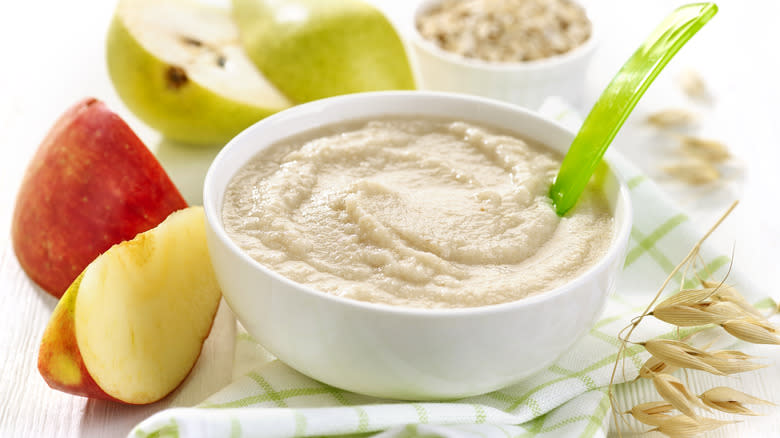
In 2021, Maple Island Inc. initiated a voluntary recall of three lots of Parent's Choice Rice Baby Cereal, manufactured for Walmart, due to potential arsenic contamination. This action came after routine FDA sampling found levels of naturally occurring inorganic arsenic above the established guidance in samples from three production lots. Distributed nationally through Walmart stores and online, Walmart has since removed the product from shelves and implemented a register block to halt further sales.
The recall, advised by the FDA and conducted with their knowledge, targeted specific 8-ounce lots sold after April 5, 2021. Despite tests on raw materials and finished products complying with FDA guidelines, the recall was issued as a precautionary measure to ensure consumer safety. The FDA acknowledges that trace elements like arsenic are common in the environment, including water, soil, and food, but emphasizes the importance of minimizing exposure to toxins to protect the developing brains of infants.
Frozen Vegetables (2016)
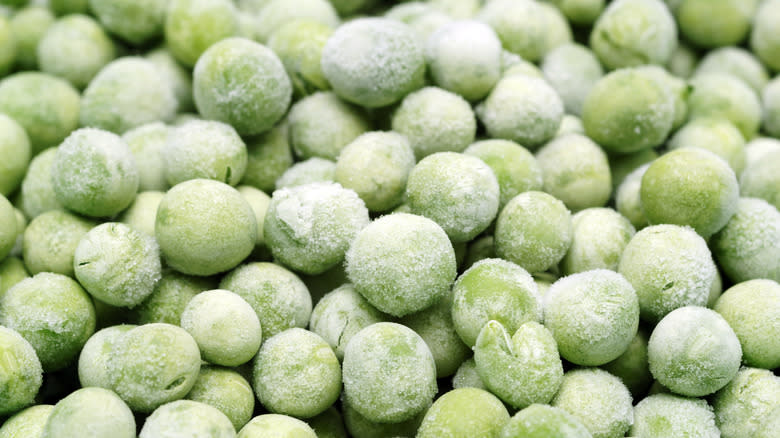
In 2016, Walmart and Target, amid a broader wave of food safety concerns, recalled a variety of frozen vegetable products over potential Listeria monocytogenes contamination, a serious health hazard. This action came in the wake of similar alerts from Costco regarding its frozen fruits and vegetables. The recalls at Target involved specific Market Pantry items, whereas Walmart's recall affected more than 20 Great Value brand frozen vegetables, including green peas and mixed vegetable lots, sold from September 2015 to June 2016. Although there were no reported cases of illness, the recalls were precautionary and aimed at averting any risk of listeriosis. Consumers holding any of the recalled items were encouraged to return them for a full refund, with detailed information available on the FDA's website.
According to the FDA, Listeria monocytogenes outbreaks in the United States have often been linked to fruits and vegetables, with dairy products and meats being the other biggest offenders.
Mac & Cheese (2016)
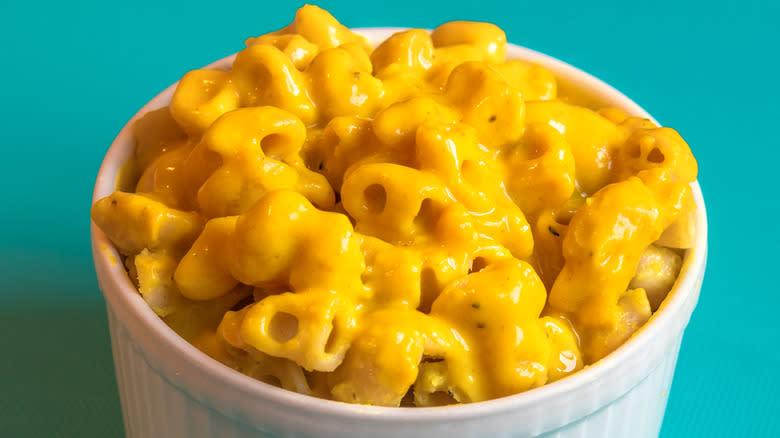
In December 2016, TreeHouse Foods Inc. issued a secondary recall for various mac and cheese products it produced, including Walmart's Great Value brand, due to potential salmonella contamination linked to powdered milk from Valley Milk Products LLC. It was one of many secondary recalls following the FDA's discovery of salmonella in the latter company's powdered milk. The FDA ended up seizing 4 million pounds from Valley Milk. TreeHouse's nationwide recall affected one Walmart product: Great Value Macaroni & Cheese Original Cups. However, the recall was for mac and cheese cups of nine different "best by" dates.
The companies advised consumers to throw away any product they might have or return it to the store for a refund. Salmonella is associated with fever and gastrointestinal problems and can pose a high risk to older people, infants, and those with weakened immune systems. Luckily, no illnesses were reported in association with this recall.
Pancake & Waffle Mixes (2022)

In 2022, producer Continental Mills recalled pancake and waffle mixes sold under Kroger and Walmart's Great Value brands due to the discovery of cable fragments from equipment in the products. While the Kroger mix was only distributed among select states, the Great Value mix was available in Walmart stores nationwide. The recall on Walmart products affected mixes with one UPC and those with "best by" dates of September 1, 2023.
No one reported eating the contaminated product or being injured by it. Continental Mills did not explain how the mixes became contaminated. However, James E. Rogers, Ph.D., Consumer Report's director of food safety research and testing said, "Pieces of conveyor belts, plastic-coated cables, and other parts of machinery can contaminate food if they fail during the packaging and manufacturing process." Customers who purchased the potentially contaminated product were offered refunds when they returned the product to the store.
Onions (2021)
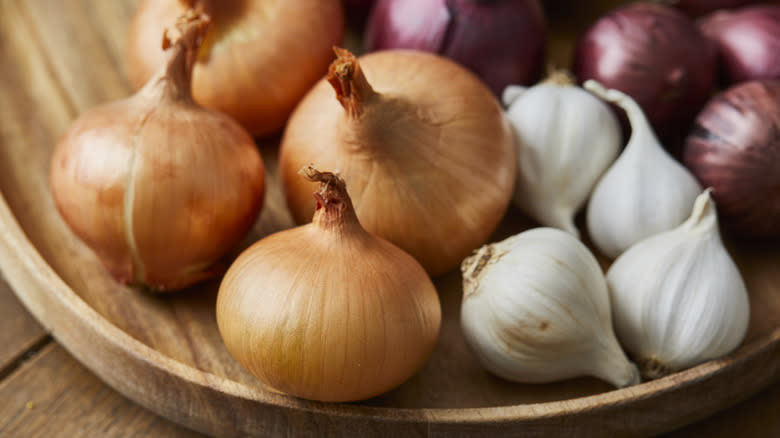
In 2021, a significant Salmonella Oranienburg outbreak was linked to fresh onions from Chihuahua, Mexico. The CDC reported that 892 people across 38 states and Puerto Rico got sick. The onions included ones imported by ProSource Produce LLC and Keeler Family Farms. Those onions were then distributed to nationwide retailers, including Walmart. Walmart's recall involved onions from several stores in Oklahoma and Texas, the states where 36% of the people got sick. Walmart also recalled onions from one store in Kansas.
At the time, onions of many varieties — red, white, yellow, and sweet — were recalled nationwide. The FDA said the onions were not just in stores but in many food service products. Meanwhile, the CDC warned that the outbreak was especially severe, with an unusually high hospitalization rate. They urged people to thoroughly clean their onions before use. Other major companies affected by this recall included Green Giant, Target, and HelloFresh.
Read the original article on Mashed.

 Yahoo Finance
Yahoo Finance 